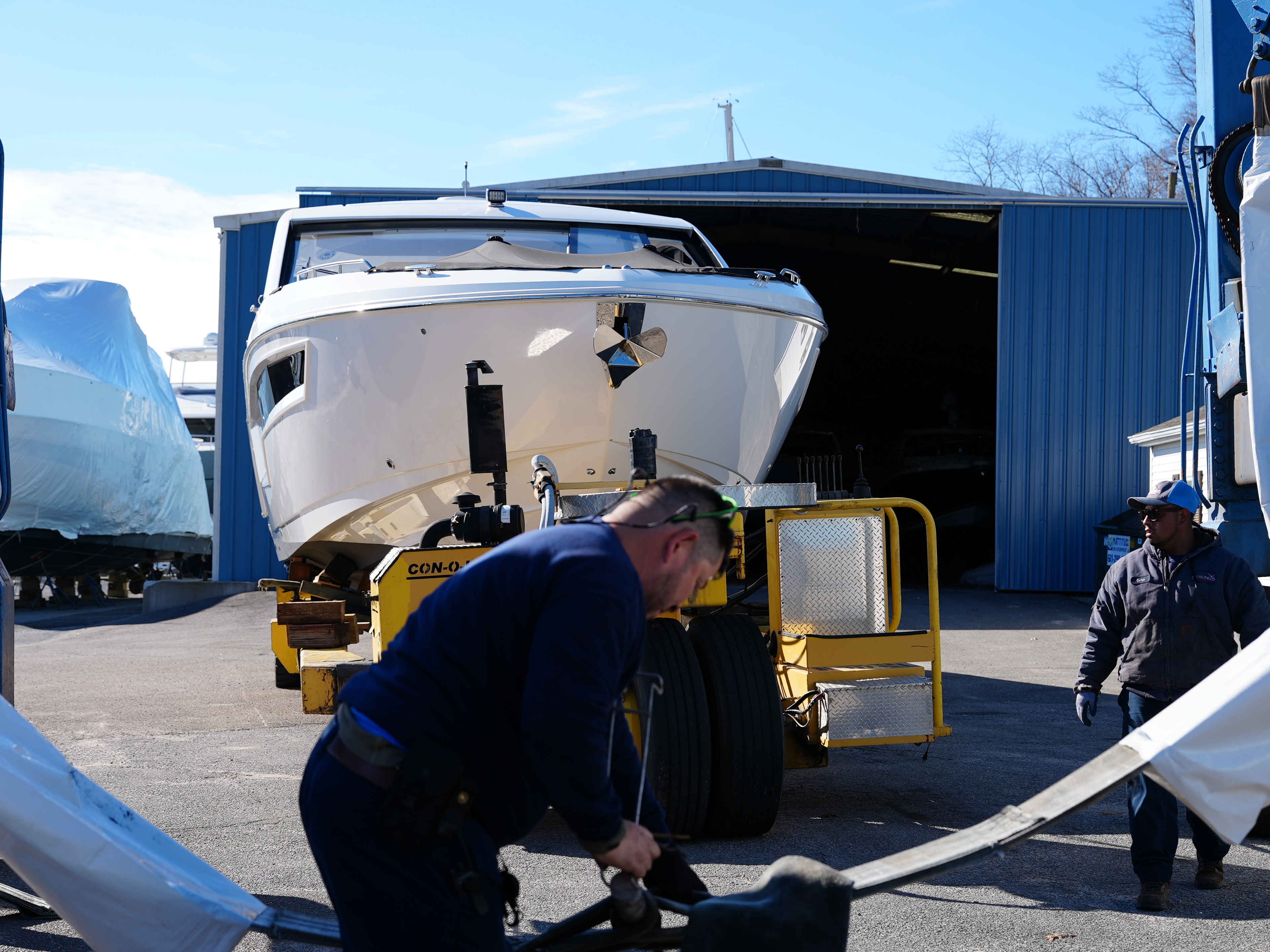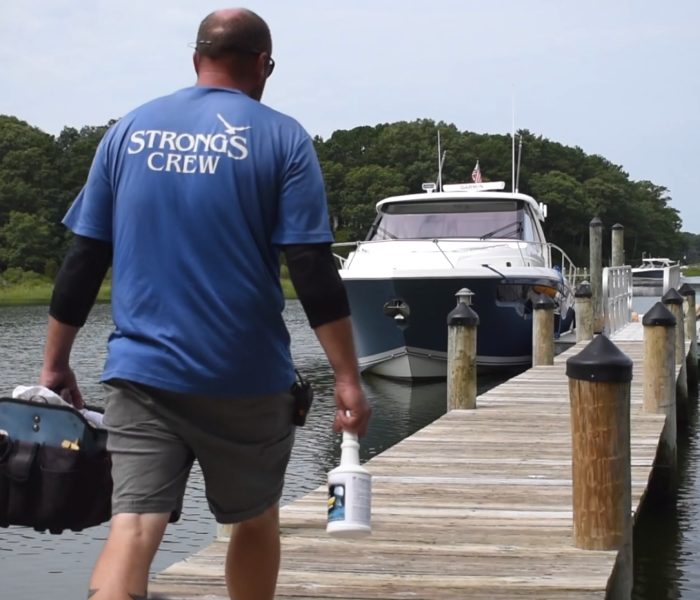What Is the Biggest Expense of Boat Ownership?
%20-%202025-04-14T152545.651.png)
The True Cost of Boat Ownership
Owning a boat is a dream for many—a chance to enjoy freedom on the water, spend time with family and friends, and create unforgettable memories. But while the idea of boat ownership is exciting, the reality of the costs involved can catch many buyers off guard. If you’re considering purchasing a boat, you may be wondering: what is the biggest expense of boat ownership?
At Strong’s Marine, we’ve been helping boaters on Long Island navigate the waters of ownership since 1945. With 12 locations across Long Island and four generations of experience, we know the ins and outs of what it really takes to own and maintain a boat. In this guide, we’ll break down the most significant ongoing costs and help you understand what to expect, so you can make the best financial decision.
The Biggest Expense: Depreciation
When you think about boat expenses, fuel and maintenance might come to mind first. But the biggest cost is often less visible: depreciation.
What Is Depreciation?
Depreciation is the reduction in your boat’s value over time. Like cars, boats lose value as they age, especially during the first few years of ownership. For new boats, this can be as much as 20% in the first year and up to 50% within five years.
What Affects Depreciation?
Several factors play a role:
- Brand Reputation: Respected brands hold their value better.
- Condition: Well-maintained boats depreciate slower.
- Market Trends: Changes in demand can impact resale value.
How Can You Minimize Depreciation?
- Buy Smart: Explore late-model pre-owned boats to minimize the steepest initial depreciation, or opt for a new vessel with the added peace of mind provided by an extended warranty.
- Maintain Regularly: Keep your boat in top condition. Service regularly & keep those records!
- Invest in Timeless Models: Classic designs tend to retain value better than trendier options.
Fuel Costs: A Recurring Expense
Boats run on fuel, and depending on your boat’s size and engine, this can become a significant recurring cost.
How Much Fuel Will You Use?
Fuel consumption varies based on boat type, engine size, and usage. A small runabout may use 5 gallons per hour, while larger yachts can consume 50 gallons or more in the same time.
Tips to Save on Fuel:
- Use fuel-efficient cruising speeds.
- Keep your hull and props clean to reduce drag.
- Plan trips to avoid unnecessary travel.
.png?width=2744&height=1874&name=Screenshot%202023-08-31%20at%203.25.22%20PM%20(1).png)
The Biggest Ongoing Expense: Maintenance & Repairs
Owning a boat means taking care of it. Routine maintenance and occasional repairs ensure your boat stays safe and functional.
Common Maintenance Tasks:
- Engine Servicing: Oil changes, filters, and tune-ups.
- Hull Care: Cleaning and anti-fouling to prevent algae buildup.
- Electrical Systems: Battery checks and wiring maintenance.
- Winterization: Winterization protects your engine, plumbing, and onboard systems from freezing temperatures, corrosion, and long-term damage. The process typically includes draining water from the engine and systems, adding antifreeze where needed, treating the fuel, cleaning and lubricating moving parts, and safely storing batteries. Proper winterization ensures your boat is ready to hit the water again in peak condition when the season returns.
-
Spring Commissioning: Spring commissioning gets your boat ready for a safe and smooth season on the water. This process typically includes inspecting and starting the engine, checking fuel and fluid levels, testing electrical systems, flushing the cooling system, and ensuring all onboard systems are functioning properly. Spring commissioning helps catch any issues early, giving you peace of mind and a fully ready boat for your first outing of the season.
What Does This Cost?
Annual maintenance can range from a few hundred dollars for smaller boats to several thousand for larger ones. Major repairs, like engine overhauls, can add up quickly.
How to Reduce Maintenance Costs:
- Follow a regular maintenance schedule.
- Address small issues before they become bigger problems.
- Buy new that has extended warranty
Unexpected Repairs: Planning for the Inevitable
No matter how well you maintain your boat, unexpected repairs are a reality. Whether it’s a broken fuel pump, a damaged propeller, or electrical issues, repair costs can quickly add up. Marine parts and labor are specialized and often expensive, making it essential to have a financial buffer for surprises.
The Cost of Marine Labor & Specialized Parts
Unlike auto mechanics, marine technicians often charge a premium due to their specialized knowledge. Labor rates typically range from $100 to $200 per hour, and some repairs require hauling the boat out of the water, adding to the expense.
Storage & Dockage Fees: A Significant Yearly Expense
Marina Dockage vs. Dry Storage: What’s More Cost-Effective?
Where you keep your boat plays a major role in your annual expenses. Your options include:
- Marina slip fees: The most convenient option, with rates typically ranging from $130 to $220 per foot annually, depending on the location of your marina and the beam of your boat.
- Dry storage: A more affordable option for smaller boats.
- Quick Launch Dockage: Skip the hassle and get on the water faster with Quick Launch Dockage at Strong’s Marine. Our premium service handles everything—from docking and launching to fueling and prep—so your boat is ready when you are.
- Trailer storage: If you own a trailerable boat and have space at home, you can avoid dockage fees altogether.
Hidden Fees in Marina Contracts
Many marina contracts include additional costs such as:
- Electricity and water fees
- Pump-out services
- Security and facility fees
Always read the fine print to avoid unexpected charges.
Insurance: Protecting Your Investment
What Boat Insurance Covers (and What It Doesn’t)
Boat insurance typically covers damage, liability, and theft, but policies vary. Expect to pay 1-2% of your boat’s value.
Factors That Impact Your Insurance Premiums
Your rate will depend on:
- Boat type and value
- Boating experience
- Where you keep and use the boat
Registration, Taxes, and Legal Fees
Annual Registration Fees by State
Each state has different registration costs, but expect to pay anywhere from $50 to $200.
Registering your vessel with the DMV can be a complex and time-consuming process, requiring careful attention to detail. At Strong’s Marine, we can take care of all your boat registration needs for you for an added fee—so you can focus on enjoying time on the water.
Sales Tax and Ongoing Tax Obligations
If you buy a new boat, you’ll likely pay sales tax upfront. Some states also have annual luxury or property taxes on boats.
Upgrades & Customizations: The Optional but Tempting Expense
Electronics, Upholstery, and Performance Upgrades
From GPS systems to custom upholstery, upgrading your boat can be exciting—but costly. Many owners spend $5,000 to $50,000+ on improvements over time.
Popular Add-Ons:
- Advanced electronics like GPS and sonar.
- Custom upholstery and seating.
- Fishing gear and water sports equipment.
- Custom Boat Names & Decals
Does Customization Increase Resale Value?
Upgrades can add enjoyment and functionality but may not increase resale value. Choose upgrades that match your boating lifestyle.

Unexpected Expenses
Every boat owner should prepare for the unexpected. From emergency repairs to last-minute equipment purchases, unforeseen costs can arise.
How to Prepare:
- Set aside an emergency fund.
- Invest in a good towing plan for breakdowns.
How Strong’s Marine Makes Ownership Easier
At Strong’s Marine, we don’t just sell boats – we’re your partner in making boat ownership enjoyable and manageable.
Expert Guidance:
With decades of experience, we help you choose the right boat for your needs and budget.
Our service packages include routine maintenance and emergency repairs, so you can focus on enjoying your boat.
With premium locations across Long Island, we offer convenient, worry-free dockage options.
Transparent Pricing:
We walk you through every cost, so there are no surprises.

Ready to Make Waves? Call Strong's Marine at 631-333-0081 to start your on-water adventure today — or shop our available inventory and find your perfect boat!
Need service or maintenance? Our expert team is here to help — just call 631-791-6150.


